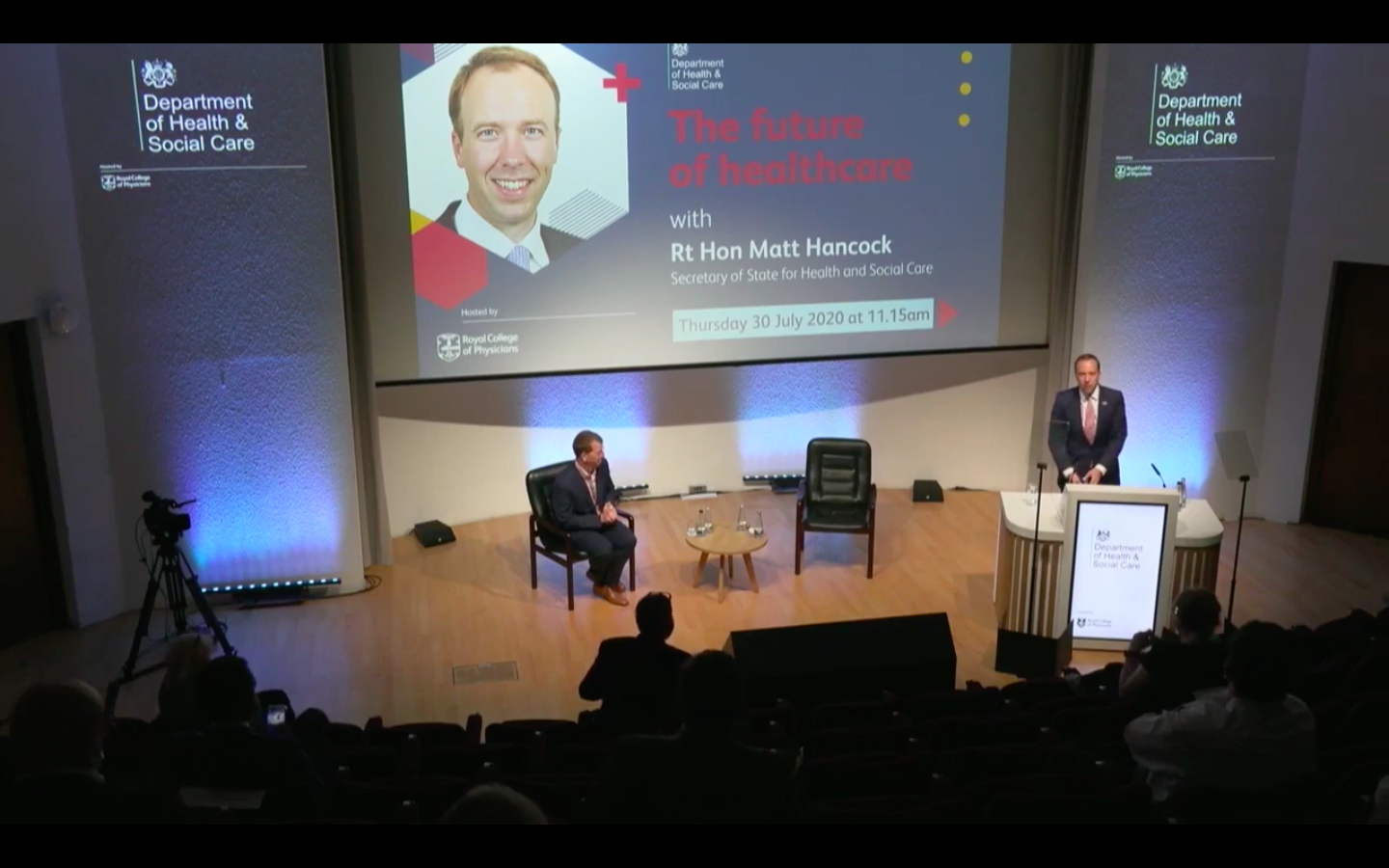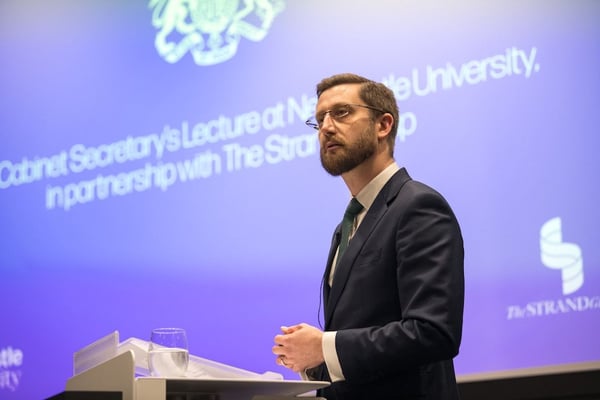Ditchley 2: Matt Hancock and the Future of UK Government
Checking the pulse of Matt Hancock’s vision for the future of healthcare and its wider implications.
Matt Hancock, the UK’s Secretary of State for Health and Social Care, made a speech last week, setting out his vision and ambitions - ‘The future of healthcare’ - and it’s fair to say that his prescription was met with a dose of healthy scepticism from media, think tanks, and even his ungracious hosts at the Royal College of Physicians.
Too ambitious, too vague, too ill-timed and naive - came the pithy put-downs, as if it was wrong to talk through the broad principles underpinning future policy at the beginning of an administration.

Pattern recognition
These hasty assessments have missed the wood for the trees - as the great significance of Hancock’s speech was that it built very deliberately upon the Ditchley lecture, ‘The privilege of public service’, delivered a month earlier by Michael Gove, Chancellor of the Duchy of Lancaster and Minister for the Cabinet Office.
For those willing to listen, the view from the heart of Government expressed in these two speeches is that the British state has been stress-tested, areas for improvement identified, and a window for change recognised as the usual Whitehall inertia has given way to crisis-driven delivery.
“Coronavirus has tested every single part of our infrastructure, giving us a new appreciation for what works and what doesn’t.”
Matt Hancock
Despite, or perhaps because, of Covid-19 - we are now seeing the Government shifting to the communication phase of a coming public sector transformation that will distribute authority to the frontline, require a new data-driven infrastructure, and result in a transformation of structures and responsibilities as the Government seeks to entrench a new, more collaborative way of working.
Distributed decision-making
One of the clear lessons learned, at all levels of the NHS and Government, has been the improved performance and speed of execution, where decision-making has been taken locally.
A month ago, Gove spoke about the need to empower experts at the front line of delivery to take necessary risks; Hancock last week took this further by suggesting that front line workers must be mandated to make decisions:
“Everyone, at all levels, needs to think like a leader and be encouraged to use their initiative and take ownership of their decisions. Where people feel empowered and encouraged to crack on with improvements, instead of having good ideas blocked.”
Matt Hancock
Hancock envisages a system of ‘distributed authority’, where decisions are made as close as possible to where the information is, with everyone working right at the top of their skill set and qualifications.
Data-driven decisions
This kind of distributed decision-making will require distributed access to data, and an information governance structure that is risk-based rather than rules-led.
At the onset of Covid-19, NHSx issued simpler guidance to support new ways of working - a single page designed for all front line professionals, making it clear that WhatsApp was an appropriate platform for information sharing with colleagues and patients, where the benefits outweighed the risks.
As a result, millions of primary care records were linked to the latest data on Covid-19, helping the Government to run the world’s largest analysis of risk factors in 42 days - something that would have taken years under the pre-crisis way of working.
Having seen these results - there is a tremendous desire both within Government, and from the front line, not to go back to the ‘Old Normal’.
“To promote collaboration and change, we need more transparency, better use of data, more interoperability, and the enthusiastic adoption of technological innovation that can improve care.”
Accelerating delivery
Unprecedented peacetime spending, coupled with fresh evidence of what works and what needs to be changed, has created huge pressure for transformative change.
GP consultations? Digital by default. Healthcare commissioning? Pushed closer to where need lies in the community. Department of Health and Social Care, NHS Digital, NHS England & NHS Improvement, Public Health England, Care Quality Commission all operating in parallel data silos? Now moving to ‘ask once, use many’ interrogation of shared datasets.
Both Gove and Hancock kept referring to the need for speeding up public-sector delivery in order to catch up with the world we live in. Hancock quoting approvingly what Martin Luther King called the “fierce urgency of now”.
This is a Government that is impatient for change; there has never been a better moment for civil servants minded to question established practice and think differently.





